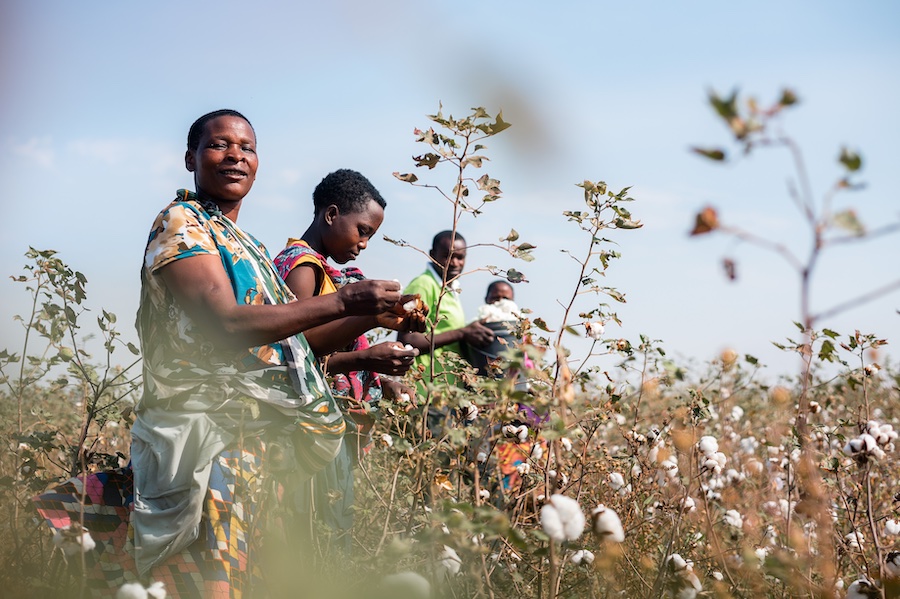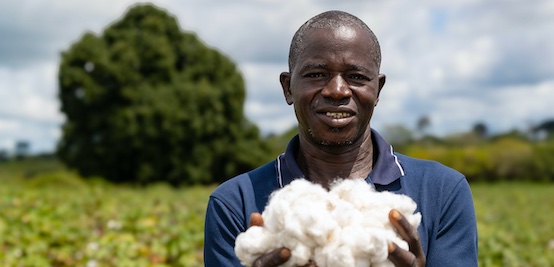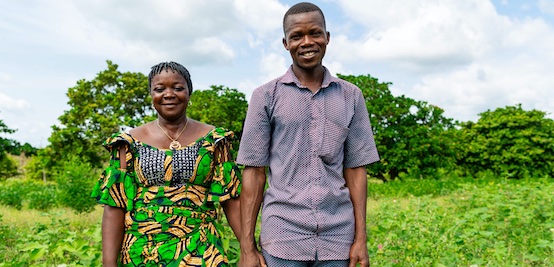#Raw Materials
Small-Scale farmers in Africa increasing focus on biodiversity in fight against effects of climate change
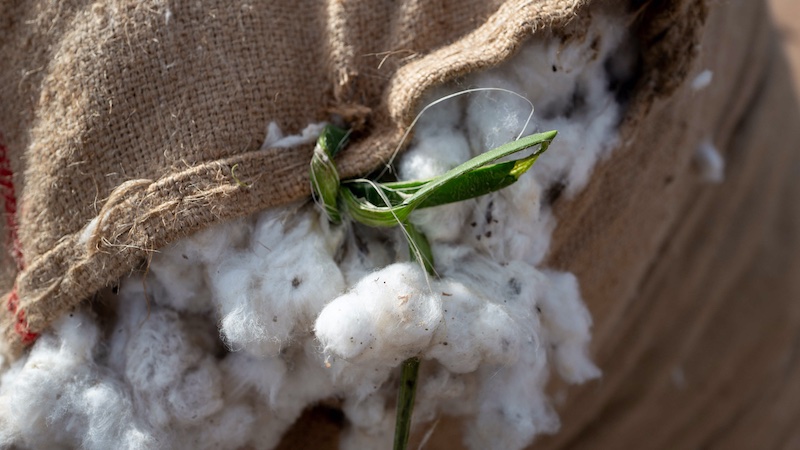
Beyond observing how the consequences of climate change threaten their work and lives, the survey shows that they also know that there are ways to counteract these consequences effectively.
The loss of biodiversity and the effects of climate change are currently taking a serious toll on cotton cultivation south of the Sahara. But how are the people actually growing the cotton affected? Cotton made in Africa is actively committed to the preservation and promotion of biodiversity in African cotton-growing areas. As part of these efforts, the Aid by Trade Foundation (AbTF), which is the organisation behind CmiA, held group discussions with farmers in Zambia to examine where they are seeing ecological changes and what measures they are taking in response. “The discussions focussed on addressing challenges and solutions together with farmers in Zambia,” says Nina Schöttle, the project manager for monitoring and evaluation, adding, “Our overall goals are to stop the decline in biodiversity and to increase the resilience of small-scale farmers in Africa through comprehensive measures that actively involve people in the growing regions.”
African small-scale farmers report on declining biodiversity and its consequences
According to the recent survey, the loss of biodiversity is clearly noticeable in rural Africa. Deforestation, poaching, and the expansion of settlements have severely affected many wild animals, even leading to the extinction of some species, and fuelled many conflicts between humans and wildlife; the survey also reports a problematic water shortage in the rivers. In the discussion groups, farmers describe the various methods they use to observe changes in the fields and the environment. For example, the lack of certain fungi in the forests indicates that biodiversity has decreased. Changes in soil structure and colour also indicate poorer soil quality, and the proliferation of certain weeds, such as witchweed and ragwort, is an indication of changes in the biological balance. They also observed climatic fluctuations, such as unusually high or low temperatures and irregular precipitation patterns.
In discussions with local farmers, it became clear how declining biodiversity influences their fields. Soil fertility is decreasing, which has led to lower yields. In the past, good results could be achieved without fertilisers, but today this is more challenging. Bush fires and the use of herbicides have reduced the presence of useful soil organisms such as earthworms, which help to break down organic material.
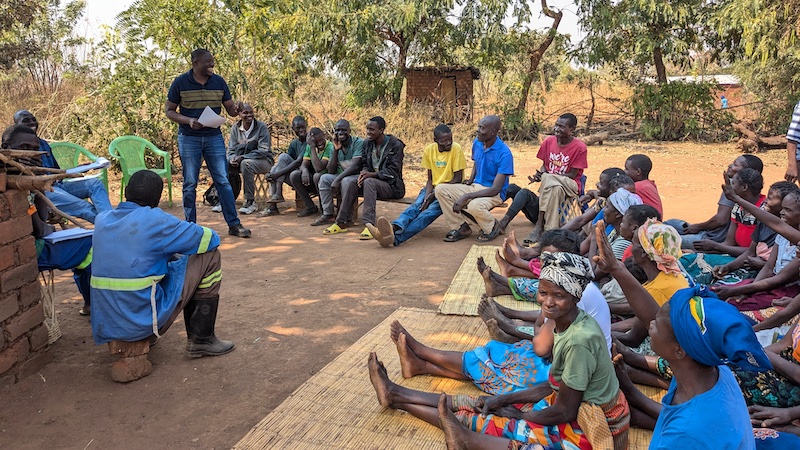
Measures to promote biodiversity
The small-scale farmers involved in the six group discussions clearly made the point that the way in which their cotton fields are managed has a significant impact on soil health and biodiversity in their surroundings. This is why small-scale farmers use crop rotation or integrated pest management for their fields in addition to limiting the use of chemical pesticides and herbicides to a minimum and substituting organic alternatives whenever possible. To conserve soil quality, they avoid tillage, and to increase it, they apply compost and organic fertilisers such as cow manure.
The promotion of sustainable practices for more climate and environmental protection in agriculture has been enshrined in the Cotton made in Africa standard for many years, and these values are shared with small-scale farmers through regular training courses. Through these and similar training programmes, CmiA primarily aims to increase small-scale farmers’ resilience against the effects of climate change and to improve their livelihoods in the long term.
The survey was carried out in July 2024 by the Zambia Agriculture Research Institute (ZARI), in co-operation with the Aid by Trade Foundation, through six focus groups in Zambia. The group of CmiA small-scale farmers consisted of 46 percent men and 54 percent women; of this total, 66 percent have lived in the area since birth and 34 percent for 10 to 20 years.



